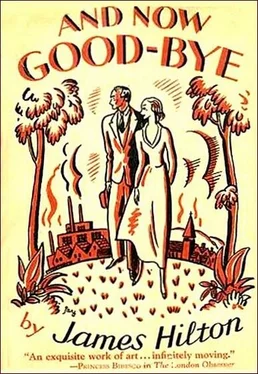Afterwards came a professional call from Salcombe, the Wesleyan minister at the other end of the town—a large, grey-bearded man with a harsh voice and a curious trick of fidgeting with his pince-nez all the time he was speaking. He wanted to talk to Howat about the Armistice Day service; Howat, he understood, had charge of the hymns; what hymns were going to be chosen? Something well-known, of course; and if he, Salcombe, might be excused for making a few suggestions…Howat found that Salcombe had everything most accurately mapped out—he wanted this hymn and that, and this and that verse omitted—all, naturally, for reasons which he was quite prepared to explain in detail. Howat, however, saved him the trouble by a swift and comprehensive acquiescence; yes, quite; exactly; he was perfectly agreeable; oh, most certainly, just so, just so. And Salcombe went home afterwards and remarked to his wife at lunch (they took dinner in the evening): “By the way, I called on Freemantle this morning, my dear. I got my way with him about those hymns. An easy man to deal with, if only one uses a little tact.”
About a quarter-past eleven Howat went out; he had several calls to make in the town. One was at the bank; he cashed a cheque on his own private account for twenty pounds (more than enough, he reckoned, for the London trip, including the cost of a new suit of clothes, if he should decide to buy one, and the highest conceivable specialist’s fee.) Then visited the library, verified the times of his trains the next morning, and chose another batch of books for young Trevis. The boy read so fast it was difficult to keep up with him, but at length Howat made a selection which he hoped would please—Haldane’s “Possible Worlds”, and two novels, Hergesheimer’s “Java Head” and one called “Brown on Resolution” by a writer named Forrester. Those ought to last Trevis over the week-end, anyway. He went round to Mansion Street with them and spent an hour or so chatting with the boy, whom he found at first in a rather depressed mood. Before leaving, he asked if there were anything Trevis would like him to bring back from London—“I shan’t be there more than a few hours, but I’ll have time to run round the shops, if there’s anything you think you’d care about.”
Trevis answered, rather sadly: “If it isn’t too much trouble you could bring me a London evening paper—I haven’t seen one since I left Cambridge. And it’ll only cost threepence if you get them all. There’s nothing else I want, thanks all the same.”
“Right, then. I won’t forget. And you can expect me round with them on Monday morning.”
He shook hands and was just going out of the room when Trevis called back: “Oh, by the way—any more news about that girl of Garland’s?”
Howat answered: “Nothing very definite, I’m afraid. Only rumours which perhaps I oughtn’t to repeat.”
“No need—I’ve probably heard them. They say the man’s a dreadful creature fat little Jew with a bald head and gold teeth. So they say, mind you But I thought you might know something.”
Howat shook his head. “I wish I did. Who gave you that description of the man?”
“Our maid had it from one of the neighbours, and heaven knows where she got it.”
“It’s extraordinary—if it’s true.”
“Yes, isn’t it? But then, Elizabeth was always an extraordinary girl.” There was a pause, after which Howat continued, with growing intensity: “It’s not only extraordinary, it’s—it’s monstrous. A young girl barely out of her teens and a man—like that—married—twice her age—”
“But I suppose it all counts for nothing when two people reckon themselves to be in love.”
“ Love? ”
Howat uttered the word incredulously, as if it were the last that would ever have occurred to him in such a connection. Even its very sound, though he enunciated it often enough in his public prayers and sermons, had a way of seeming different when uttered in a small room and in the course of casual conversation. Love , indeed? Love to him was the feeling he had for his wife, and which he presumed other men had for their wives; he understood it as such; it was a straightforward, simple feeling, perfectly reasonable and devoid of complication. Whereas this feeling of Elizabeth Garland for her paramour (the quaintly old-fashioned term was the only one he could bring to mind) must be something altogether different, something totally and mercifully outside his own and most other people’s personal experience.
He said, abruptly: “Good-bye, Trevis, must get away—so many odd things to do before tomorrow. I won’t forget those papers for you…And as for that other matter—the one we’ve just been discussing I’m afraid it’s useless to theorise. Perhaps things may not turn out as badly as we fear. Good-bye, now, until Monday.” Then he went home to dinner at the Manse.
He was busy all afternoon; it was amazing how even a projected absence of two days entailed all sorts of arrangings and postponements, letters to this person and that, instructions, suggestions, and excuses. He was by nature a hard and enthusiastic worker, and Browdley had well learnt that if there were a charity concert to be organised, a subscription to be raised, a movement to be launched, a defunct society to be resuscitated, or any particularly tiresome or exasperating piece of work to be done, the Reverend Howat Freemantle could usually be relied upon for the job. It was not that he enjoyed the fuss and bother of such things (quite the contrary, indeed), but it was always easy to persuade him that they were duties that someone ought to do, and that if he didn’t tackle them, probably nobody would. It was known, too, that once he had set his hand to a task, he never flagged, never complained, and never shirked responsibility.
So, during a dozen years, his life had gradually become more fretfully busy, nor had he developed to any degree the art of delegating authority and leaving odd jobs to subordinates. He was old-fashioned, too, in his methods; a telephone would have been a help to him, but he believed he could not afford it, and he still wrote out all his letters by hand. He would sometimes have welcomed assistance from his daughter, but he felt that she had her own work to do, and he did not care to ask her. Often, when a succession of exacting trivialities tired him out completely, he would feel that he really must cut down some of his societies; but when he began to think out which ones to cut, he always found the problem far too hard. Enthusiasm, indeed, was ever ready in him to rise up at the mere thought of neglecting or abandoning anything.
This afternoon, this Thursday afternoon, he found the hundred and one urgencies of the moment producing in him that familiar mood of tired resentment. One of his activities was the treasurership of a Savings Certificate Club; children at day and Sunday school brought their pennies to him or to Mary, and the accumulation was invested at the local post office. All this required careful booking, and now, he discovered, as he went through the records, Mary had let things get in a muddle. After over an hour of exceedingly tiresome reckoning he succeeded in restoring the club to solvency by means of a grant from his own pocket of three and ten-pence. It was annoying, and he was, so far as he could ever be, annoyed. If Mary had been there in the house he might even have addressed her strongly; but she was out, and he could only feel vaguely out of humour with himself and things in general. Really, he reflected, surveying the litter on his desk that represented work both finished and unfinished, he would have to prune away a lot of his routine work; he felt like a pioneer in a tropical jungle, growing weaker every moment while the enveloping foliage became denser and harder to penetrate. There was the Antiquarian Society, which always for some reason sent him the most troublesome Latin documents to translate he knew Latin, it was true, but he was no particular scholar—why couldn’t the Grammar School masters try their hands at that sort of thing? And the Tennis Club (he wasn’t interested in tennis and couldn’t imagine why they had asked him to be secretary), and the local League of Nations Society (he was interested in the League of Nations, but there were other people who ought to be able to do the job of President quite as adequately), and the Hospital Sunday Fund (a splendid thing, doubtless, but why didn’t some of his professional colleagues take their turn with it?)—he reviewed them all in his mind, one after the other, and wondered which obligation he could get rid of with least commotion.
Читать дальше











